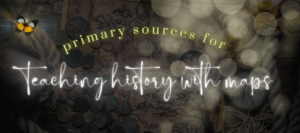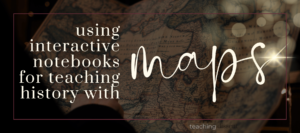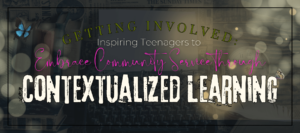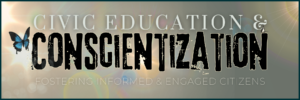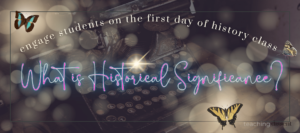In a world where social progress and inclusivity are key for a sustainable future, the importance of empowering the next generation cannot be overstated. As we examine the impact of education on shaping future leaders, a compelling question arises: how can teaching feminist theory in high schools transform students into empathetic, socially conscious, and inclusive individuals ready to take on the challenges of tomorrow?
The potential of integrating feminist history and feminist theory into the curriculum of public high schools is vast and transformative, with the ability to mold students into compassionate advocates for equality. By understanding the principles of feminist theory and its relevance in education, we can foster empathy and inclusivity, break down gender stereotypes and challenge social norms, and ultimately prepare students to become empowered leaders who strive for a more equal and just society.
Throughout this article, we will explore these topics in depth, delving into the profound impact that teaching feminist theory can have on high school students. By doing so, we hope to inspire action and encourage educators, parents, and policymakers alike to embrace this powerful tool for shaping the minds of the next generation. Together, let us embark on a journey to empower our youth and create a brighter, more equal future for all.
Understanding Feminist Theory and its Relevance in Education
By understanding the principles of feminist theory and its relevance in education, we can foster empathy and inclusivity, break down gender stereotypes and challenge social norms, and ultimately prepare students to become empowered leaders who strive for a more equal and just society. Throughout this article, we will explore these topics in depth, delving into the profound impact that teaching feminist theory can have on high school students. By doing so, we hope to inspire action and encourage educators, parents, and policymakers alike to embrace this powerful tool for shaping the minds of the next generation. Together, let us embark on a journey to empower our youth and create a brighter, more equal future for all.
Fostering Empathy and Inclusivity through Feminist Education:
High school is a critical time for young minds to develop a sense of empathy and understanding for others. By incorporating feminist theory into the curriculum, educators can provide students with a framework for recognizing and challenging various forms of oppression, including sexism, racism, and LGBTQ+ discrimination. Through the study of feminist theory, students are encouraged to critically analyze power structures and advocate for the rights of marginalized groups. This not only cultivates empathy towards others but also equips students with the necessary tools to actively participate in creating inclusive communities. By understanding the diverse experiences and inequalities faced by different individuals, students can develop a sense of empathy that extends beyond the classroom and into their future interactions as leaders and advocates for equality.
In addition to fostering empathy, feminist education also plays a crucial role in promoting inclusivity. By addressing societal norms and expectations placed on individuals based on their gender, feminist theory challenges students to question and reject gender stereotypes. It encourages them to consider the full spectrum of gender identities, promoting a more inclusive understanding of what it means to be a man or a woman. This inclusive approach helps break down harmful binaries and allows students to embrace their own identities, while also respecting and appreciating the experiences of others. As a result, high school students are better equipped to create inclusive spaces that celebrate diversity and honor the rights and autonomy of all individuals.
By instilling a sense of empathy and encouraging inclusivity through feminist education, high schools have the potential to shape future leaders who are not only aware of social injustices but actively work towards dismantling them. The principles of feminist theory, when integrated into the curriculum, serve as a powerful tool for empowering students to challenge the status quo and advocate for a more equitable society. In the next section, we will delve deeper into the ways in which feminist education can break down gender stereotypes and challenge social norms, ultimately preparing students to become agents of change. This exploration will shed light on how feminist education provides the foundation for fostering a more progressive society and transforming students into empathetic and inclusive leaders.
Empowering Students to Advocate for Gender Equality
In addition to fostering empathy, feminist education also plays a crucial role in promoting inclusivity. By addressing societal norms and expectations placed on individuals based on their gender, feminist theory challenges students to question and reject gender stereotypes. It encourages them to consider the full spectrum of gender identities, promoting a more inclusive understanding of what it means to be a man or a woman. This inclusive approach helps break down harmful binaries and allows students to embrace their own identities, while also respecting and appreciating the experiences of others. As a result, high school students are better equipped to create inclusive spaces that celebrate diversity and honor the rights and autonomy of all individuals.
By instilling a sense of empathy and encouraging inclusivity through feminist education, high schools have the potential to shape future leaders who are not only aware of social injustices but actively work towards dismantling them. The principles of feminist theory, when integrated into the curriculum, serve as a powerful tool for empowering students to challenge the status quo and advocate for a more equitable society. In the next section, we will delve deeper into the ways in which feminist education can break down gender stereotypes and challenge social norms, ultimately preparing students to become agents of change. This exploration will shed light on how feminist education provides the foundation for fostering a more progressive society and transforming students into empathetic and inclusive leaders. By empowering students to challenge existing gender norms, feminist education equips them with the tools to advocate for gender equality and drive meaningful change in their communities and beyond.
Preparing Future Leaders for an Inclusive Society
Preparing future leaders for an inclusive society involves nurturing their understanding of the importance of intersectionality, promoting empathy and inclusivity, and equipping them with the tools to challenge systemic inequalities. Intersectionality is a fundamental concept in feminist theory that recognizes the interconnectedness of social identities and the way they intersect to shape a person’s experiences of privilege and oppression. By teaching students about intersectionality, we can help them understand the multidimensional nature of social inequalities and the ways in which race, class, gender, sexuality, and other factors intersect to create unique experiences of privilege and marginalization.
Promoting empathy and inclusivity is another crucial aspect of preparing future leaders for an inclusive society. Through feminist education, students are encouraged to develop a deep sense of empathy towards others and to recognize the importance of inclusivity in all aspects of life. By examining the experiences of marginalized groups and understanding their struggles, students can gain a broader perspective and learn to challenge their own biases and prejudices. This empathy and inclusivity not only fosters a more inclusive school environment but also prepares students to be compassionate leaders who are capable of understanding and addressing the diverse needs and perspectives of others.
Equipping students with the tools to challenge systemic inequalities is a key objective of feminist education. This involves teaching students critical thinking skills and providing them with the knowledge and vocabulary to articulate and challenge oppressive systems and structures. By analyzing media, literature, history, and current events through a feminist lens, students can develop a critical consciousness that enables them to recognize and question the underlying power dynamics that perpetuate inequality. Armed with this understanding, they can actively work towards dismantling these systems and advocating for a more equitable society.
In conclusion, preparing future leaders for an inclusive society requires a multifaceted approach that goes beyond traditional education. By embracing feminist theory and integrating it into the curriculum, high schools can empower students to challenge the status quo, advocate for gender equality, and drive meaningful change in their communities and beyond. Through nurturing an understanding of intersectionality, promoting empathy and inclusivity, and equipping students with the tools to challenge systemic inequalities, feminist education lays the foundation for fostering a more progressive and equitable society.
By instilling these values in the leaders of tomorrow, high schools can contribute to creating a future where inclusivity, empathy, and equality are valued, respected, and embraced by our whole community.



